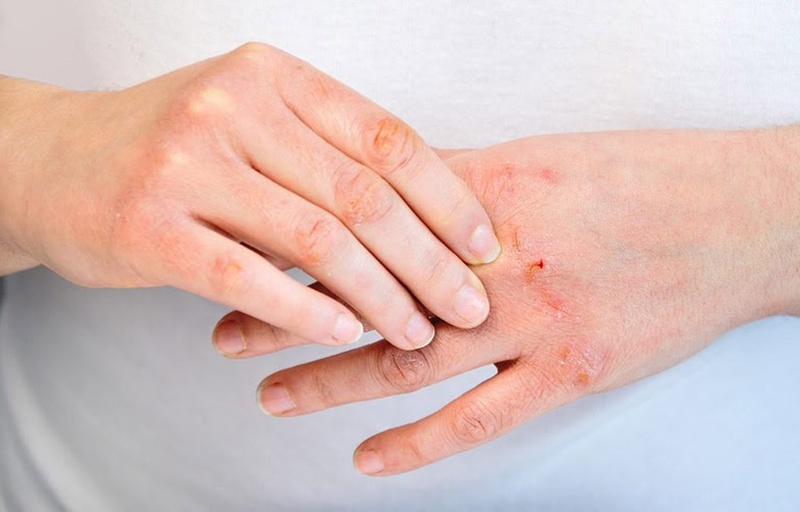
1. Overview:
Allergies occur when your immune system reacts to a foreign substance — such as
pollen, bee venom or pet dander — or a food that doesn’t cause a reaction in most people.
Your immune system produces substances known as antibodies. When you have
allergies, your immune system makes antibodies that identify a particular allergen as
harmful, even though it isn’t. When you come into contact with the allergen, your
immune system’s reaction can inflame your skin, sinuses, airways or digestive system.
The severity of allergies varies from person to person and can range from minor irritation
to anaphylaxis — a potentially life-threatening emergency. While most allergies can’t be
cured, treatments can help relieve your allergy symptoms.
2. Symptoms
Allergy symptoms, which depend on the substance involved, can affect your airways,
sinuses and nasal passages, skin, and digestive system. Allergic reactions can range from
mild to severe. In some severe cases, allergies can trigger a life-threatening reaction
known as anaphylaxis.
Hay fever, also called allergic rhinitis, can cause:
– Sneezing
– Itching of the nose, eyes or roof of the mouth
– Runny, stuffy nose
– Watery, red or swollen eyes (conjunctivitis)
A food allergy can cause:
– Tingling in the mouth
– Swelling of the lips, tongue, face or throat
– Hives
– Anaphylaxis
An insect sting allergy can cause:
– A large area of swelling (edema) at the sting site
– Itching or hives all over the body
– Cough, chest tightness, wheezing or shortness of breath
– Anaphylaxis
A drug allergy can cause:
– Hives
– Itchy skin
– Rash
– Facial swelling
– Wheezing
– Anaphylaxis
Atopic dermatitis, an allergic skin condition also called eczema, can cause skin to:
– Itch
– Redden
– Flake or peel
3. Prevention:
Preventing allergic reactions depends on the type of allergy you have. General measures
include the following:
– Avoid known triggers. Even if you’re treating your allergy symptoms, try to avoid
triggers. If, for instance, you’re allergic to pollen, stay inside with windows and doors
closed when pollen is high. If you’re allergic to dust mites, dust and vacuum and wash
bedding often.
– Keep a diary. When trying to identify what causes or worsens your allergic symptoms,
track your activities and what you eat, when symptoms occur and what seems to help.
This may help you and your provider identify triggers.
– Wear a medical alert bracelet. If you’ve had a severe allergic reaction, a medical alert
bracelet (or necklace) lets others know that you have a serious allergy in case you have a
reaction and you’re unable to communicate.